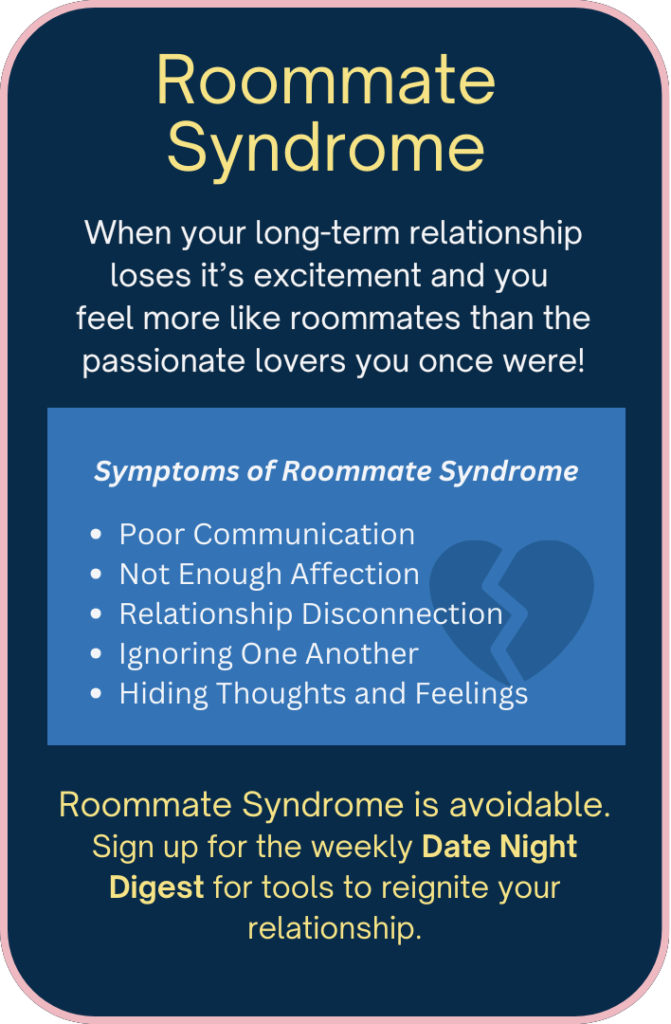Avoiding conflict is killing your relationship. It’s making you feel lonely and misunderstood. It’s killing off your sex life, too.
Few people enjoy fighting with their spouse. A good debate scratches an itch, but arguing is a different thing. It’s stressful and can deeply hurt your relationship.
It’s natural that you disagree with your spouse. In fact, it’s one of the strengths of being in a long-term relationship. You each bring a unique perspective and experiences to situations. Because you think differently, you will come up with many more options to problems.
Arguing is different. Fighting with your spouse leaves battle scars. It is hard to heal those injuries. Most people hang onto the harsh things their spouse says. You can’t unhear some things.
So, you try to avoid conflict so that it won’t turn into a fight.
Most of the things people do to avoid a fight hurts their relationship. You might recognize a few of these strategies.
Avoiding discussions.
Putting off difficult discussions off until tomorrow sends a powerful message to your spouse. They hear you saying that what is important to them is not your problem. They will feel lonely in dealing with the problem. Next, they won’t feel safe enough to be vulnerable with you in other situations.
Rushing to a quick agreement.
If one of you gives in to keep the peace, that agreement will fall apart because you won’t believe in the solution. When it becomes challenging, you won’t have the motivation to uphold the agreement. You’ll break the agreement, which can hurt and disappoint both of you.
Biting your tongue and letting it slide.
This relationship advice comes from a good place but is terrible in practice. When you don’t talk about what is bothering you, you will dwell and ruminate on it. You’ll let the hurt feelings fester until the issue bursts out of you. By then, it’s hard for you to be kind while you’re being honest. Your partner will feel attacked so it will be hard for them to hear you.
Talking while multitasking.
When you are on your phone, doing a chore, or taking care of the kids, it’s impossible to listen well. To solve a problem, you need to understand what the problem is, why it is an issue, and ways to fix it. You miss details in what your partner says when you are distracted. They’ll conclude one of the following things:
- you don’t care about their feelings.
- what they are saying is not important.
- you are not a partner or source of support in this situation.
Having marathon discussions.
You’ve heard the advice: “Don’t go to bed angry.” Many people interpret this to mean that you shouldn’t go to bed before you resolve the issue. In reality, it pushes couples to have late night marathon discussions. These ruin your sleep and disrupt the next day with sleepiness. As you feel more exhausted and frustrated, you will exaggerate and become harsher. That means that you will hurt each other. It is better to table the discussion for a better time and reaffirm that you love one another. Your relationship is much bigger than this one argument.
One and done conversations.
You try to resolve difficult problems with one long conversation. Instead you both get overwhelmed by the complexity of the issue. It sets you up to feel flooded with big emotions that take over the discussion.
Failing to bring up the issue again.
If you are like most couples, you will eventually take a break during a difficult discussion. You will wait until after you’ve said some hurtful things, but you will call for a break. What you don’t do, is bring the problem up again. You mistakenly believe that bringing it up will trigger another argument. Instead, you avoid the topic until the next argument. Then you will pile it onto the heap of unresolved problems. This makes it feel impossible to solve. Because you are arguing about it again, you won’t take a break next time, either. If your choice is to argue about it today, or argue about it in the future, you’ll choose to argue it today until you reach a solution. But you won’t get a solution because you are arguing.

So what works to reduce conflict?
You don’t mean to make things worse. Like most of us, you probably didn’t grow up with good models for solving problems. A common old parenting rule was “Don’t argue in front of the kids.” It sounds good in theory. However, kids from no-conflict families have as many misconceptions of conflict as kids from high-conflict families. These kids learn the unrealistic expectation that conflict in relationships is unnatural. And they have few tools to work through problems.
Let’s face it, conflict in relationships is inevitable. In many ways, it’s even good. It helps you resolve the normal differences that occur between two people.
If you are going to live well with your partner, problems need to be solved. You may not be able to completely resolve an issue. Instead, you can create a series of workarounds that you revisited over time. It doesn’t take an argument to fix things.
When you do conflict well, it builds the relationship. Imagine that: you find a solution AND feel closer to your partner. That’s a win-win for you, your partner, and your relationship.

Conflict rules that work:
- Have shorter, more frequent planned discussions about difficult topics. It’s more effective to spend ten minutes a day or thirty minutes a week talking about a problem.
- Sum up your partner’s side of the issue to their satisfaction before trying to solve the problem. This shows that you really understand their position. Being able to describe their stance doesn’t mean that you agree with them. It means that you are aware of how they are thinking and feeling.
- Regularly talk about the little things that bother each of you. Don’t ruminate on issues or let things build up. Find solutions to problems when they are small.
- Give your full attention during discussions. You want their attention and they want yours. When you cut out the distractions, you really notice and understand their needs.
- Take breaks, but return to the conversation after you both are calm. If you start a discussion, and it turns into an argument, you have an unfinished conversation. If you don’t go back to the discussion, you will argue about it later.
- Instead of telling your partner what you need, bring the problem to them. Then they’ll be able to work with you to find a solution.
All couples experience the ebb and flow of being in sync. You will feel connected more often when you invest time, energy, and creativity into the relationship. The payoff will be a close, connected, and intimate relationship. Don’t let yourselves drift into complacency. You deserve a vibrant and exciting relationship!
Change the rules around disagreement and it will dramatically change how your relationship works. Instead of feeling like your partner is against you, they will be your ally. You’ll feel like they are on your side and have your back. What could be more beautiful in life than that? It’s worth the effort to learn new tools to handle conflict.
Having trouble reducing the conflict in your relationship? If you are, join others who are committed to improving their relationship in the Facebook Date Night Community.



